7 Foods That Trigger Belly Bloat You Should Never Eat
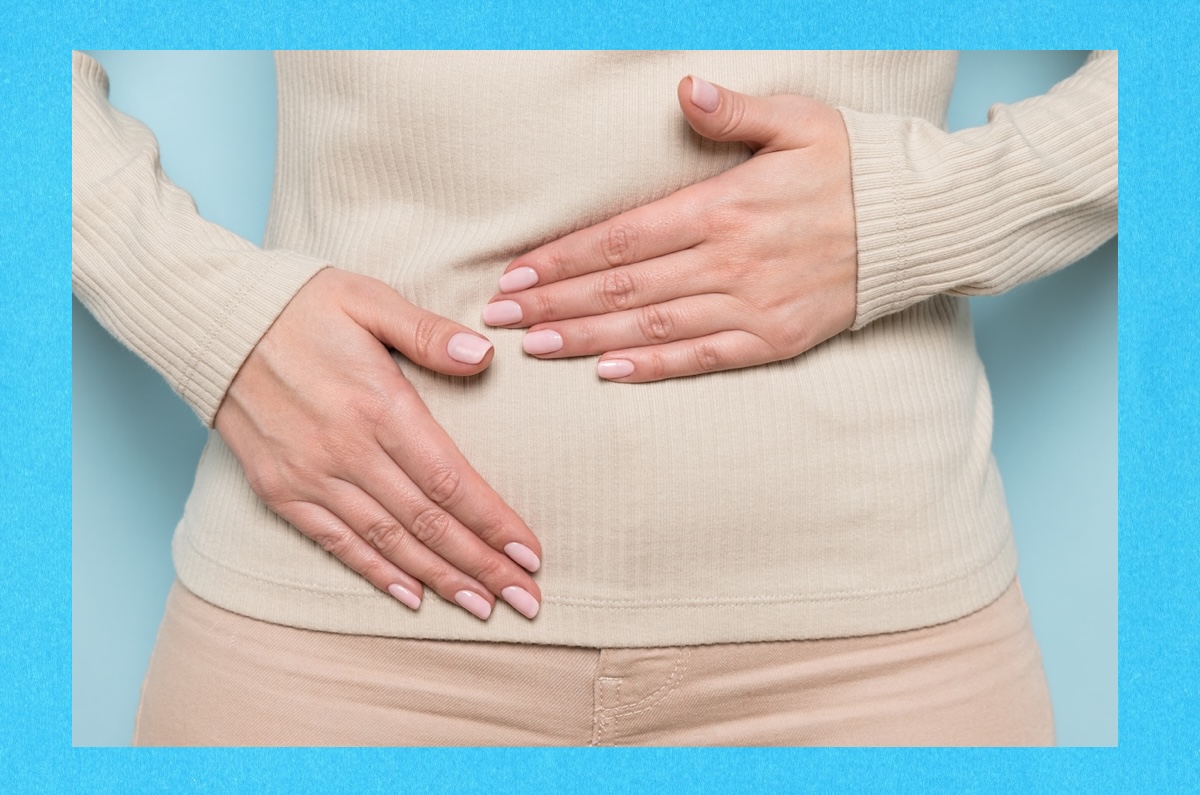
If you want to keep belly fat at bay, there are some foods you should avoid – and some of them might surprise you. “Sometimes the foods that you think are ‘healthy’ are actually wrecking your gut,” Dave Asprey, 4x NY Times Bestselling Author of Heavily Meditated, Health Science and Biotech Entrepreneur and “The Father of Biohacking’ tells us. Here are 7 foods that can cause massive bloating and trigger belly fat.
Oats
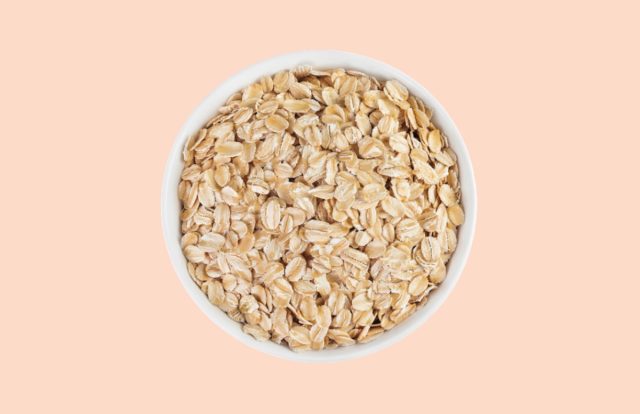
Oats offer many health benefits, but the grain can also lead to bloat. “Oats are full of compounds called lectins. Lectins are antinutrients that bind to minerals in your body and prevent you from absorbing them. They can also adhere to components in your gut lining and increase permeability, giving you leaky gut. Leaky gut can lead to symptoms like excess gas, bloating, and systemic inflammation. Instead of oats, have steak and eggs for breakfast for sustained energy and zero bloat! If you need carbs, go for cream of white rice. It doesn’t have all of the lectins and anti-nutrients that oats have,” says Asprey.
Raw Cruciferous Vegetables
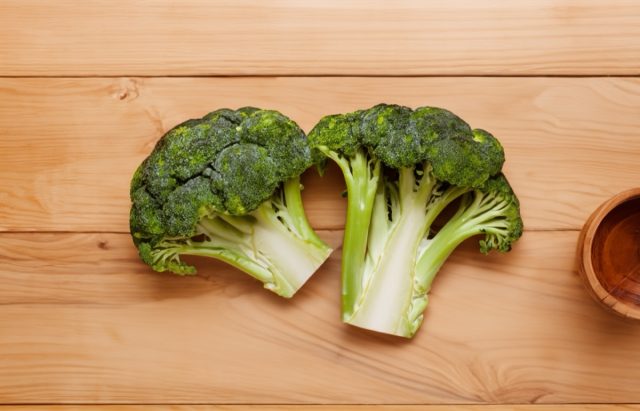
Uncooked cruciferous vegetables are high in fiber and can lead to belly bloat. “If you’re going to eat cruciferous vegetables, cook them first. Raw cruciferous vegetables like broccoli, cauliflower, brussels sprouts, and cabbage contain compounds that cause bloating and gas. Cooking can reduce these compounds,” says Asprey.
Diet Soda
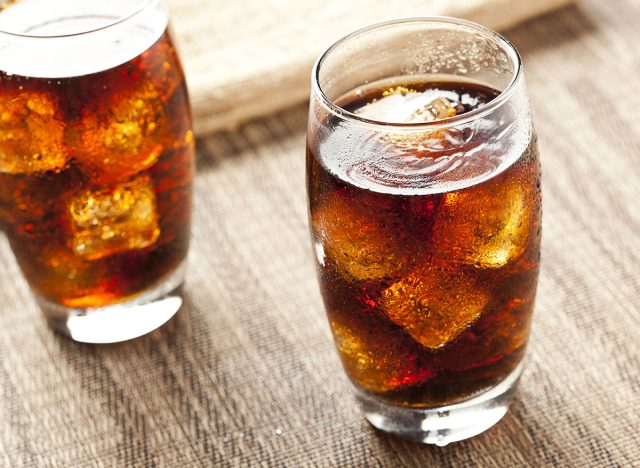
Drinking diet soda can also lead to bloat. “Diet soda is loaded with artificial sweeteners that disrupt your gut microbiome and can lead to major bloating. Coffee gives you way more energy and won’t bloat you like soda!” says Asprey.
Beans
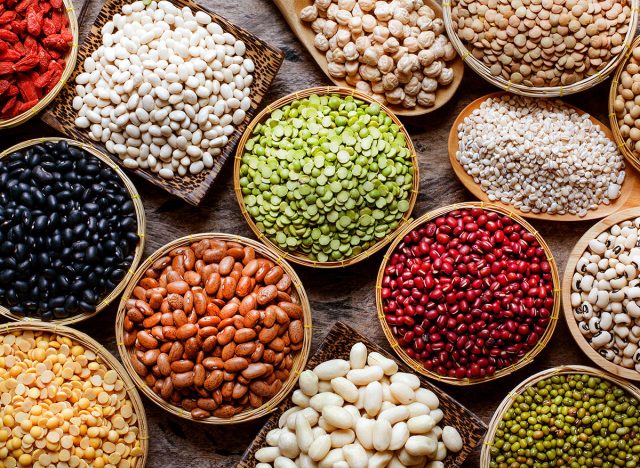
“Like oats, beans contain lectins that can lead to leaky gut and bloating. They’re also high in indigestible carbs that cause gas. White rice is a better, low-toxin carb,” says Asprey.
High-Fructose Fruits
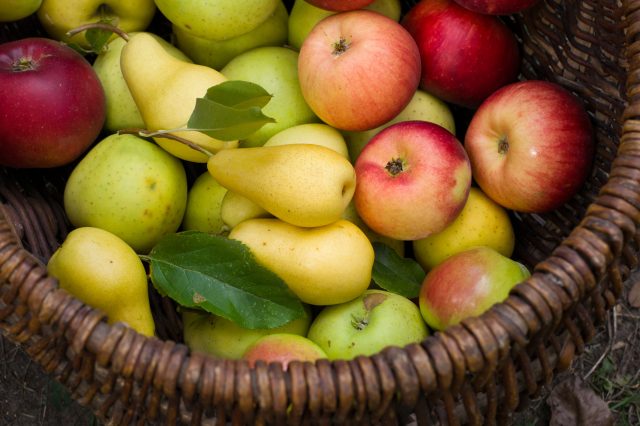
High-fructose fruits also lead to belly bloat. “Many people do not tolerate high levels of fructose. Some symptoms of fructose intolerance are gas and bloating. High fructose fruits include dates, apples and pears (you can find lists of fruits and their fructose content online). Excess fructose isn’t good for your liver either. Not everyone has to exclude high-fructose fruits all the time. Just be mindful. Swap out high-fructose fruits with lower-fructose ones, including blueberries, lemons, limes, and cantaloupe,” he says.
Protein Bars
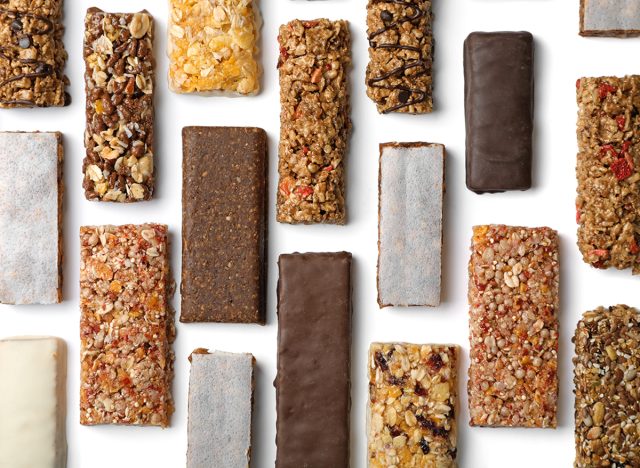
Be careful of protein bars. “Protein bars usually contain a mix of fermentable fibers, artificial sweeteners, binding agents, nuts, and/or high fructose fruits. This combination of ingredients can make the bacteria in your gut go crazy and produce a lot of gas. Also, the protein in these bars is usually low-quality soy, which contains phytoestrogens that can make you bloat. Get your protein from grass-fed meat,” says Asprey.
American Wheat
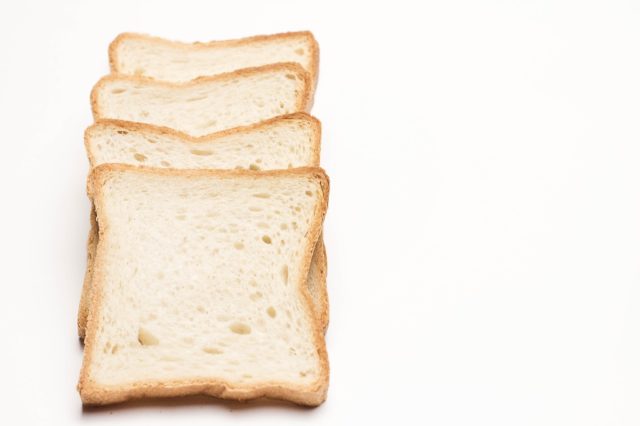
American wheat is also a bloating food. “How many times have you heard gluten-intolerant people talk about how they went to Europe and were able to eat bread with no issues? Well, I’m one of those people! Why is it that we can eat gluten in Europe with no issues, but get bloating, acne, rashes, and fatigue when we eat the bread here in America? Well, one reason is glyphosate, an herbicide that farmers use that’s linked to liver issues, cancer, neurological problems, and more. It also disrupts your gut microbiome. Another reason that European wheat is better-tolerated is because of the type of wheat they use – it’s lower in gluten. American wheat also tends to contain lots of processing agents like potassium bromate, which can irritate your GI tract. If you’re going to eat wheat, make sure it’s from France and ferment the heck out of it (make sourdough) because fermentation increases digestibility,” he says.
Final Note
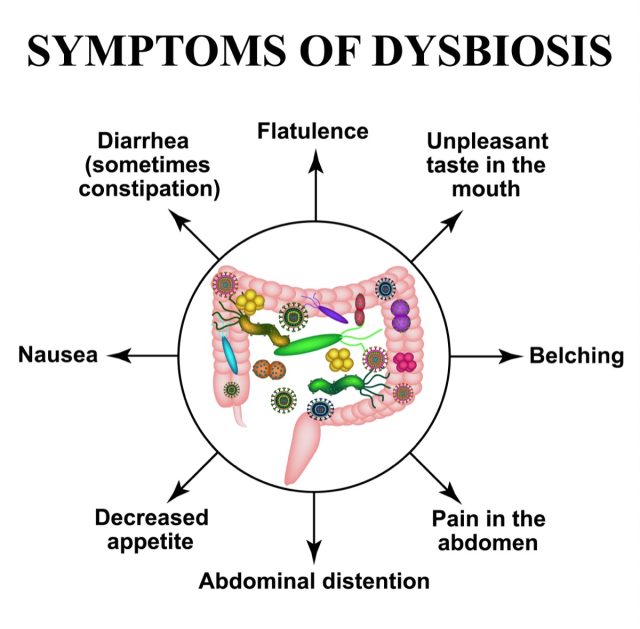
One final piece of advice from Asprey? “It’s worth noting that if you’re getting bloated after every meal, this may be a sign that you have gut dysbiosis, a food intolerance and/or low stomach acid. You might want to try a 2-week elimination diet or take betaine HCl and digestive enzymes with your meals. Or try the Bulletproof diet, which has helped a lot of people heal their chronic gut issues!” he says.